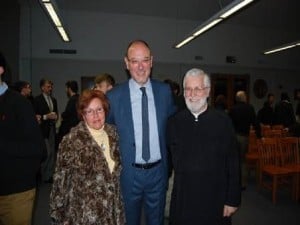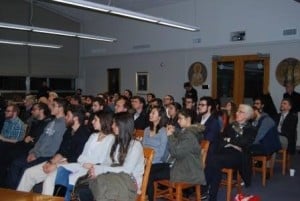“This world of the great and the small…” (Chrysostomos Stamoulis)
11 Μαΐου 2016
[Previous Publication: http://pemptousia.com/2016/04/give-to-the-stranger-give-me-this-stranger/]
Now, if all those voices are speaking the truth in focusing on the defeat and note that the Christian Church today is incapable of giving meaning to its existence, to the manner of its presence in modern society and especially to its relationship with the stranger, the different, the Other, then we ought to confess boldly that this weakness is directly linked to the person of Christ. To put it another way, it is linked to the inability of the members of the ecclesiastical body to understand and therefore experience the Orthodox Church as the Church of the Incarnation. And naturally this, has nothing to do with the ideological quotation of Christian references nor, of course, with a corresponding contribution of preachy, sterile, emotional/psychological values, but mostly and preeminently with the alteration which such an empirical understanding creates in the body of the Church community which is moving towards the last days.

Allow me to explain. I have the feeling that despite the fact that there has been much talk recently about the Incarnation of the Son and Word of God the Father – in any case we unfailingly celebrate Christmas once a year, as we do Easter- the verbalism of the sermons and apologetics seems to have no connection with the immediate state of the members of the Church, whose life seems to be impermeable and therefore impregnable to the gentle breeze of Grace. It appears, then, that the Word became incarnate in word only. In practice, the life of the Church operates within its rules and we may be thankful that the few exceptions, the outposts of love, have not been destroyed. These exist merely to confirm the disheartening operation of the rule, on the verge of an Old Testament model, that is, on the verge of an dis-carnate reality which cannot be fulfilled.

And if there is a need for even greater clarity, for the word of truth to be spelt out through the use of examples, of revelatory images from the life of the body of the Church, we need to have recourse to the place where this is to be found directly, the land of Divine Dispensation, where there is a tragic encounter- if there is one at all- between God and people, the creator and the created. If we are to see the God of Orthodoxy, we have to look the people of Orthodoxy squarely in the face. Discourse about God and discourse about the Church require and, at the same time, seek, that is infer, discourse about people. Behold then, this land of the encounter of the large and little, of the important and the unimportant, this world of the great and the small, the human person. Whoever this person is and their God is, this is their Church, this is their world, this is their culture.





